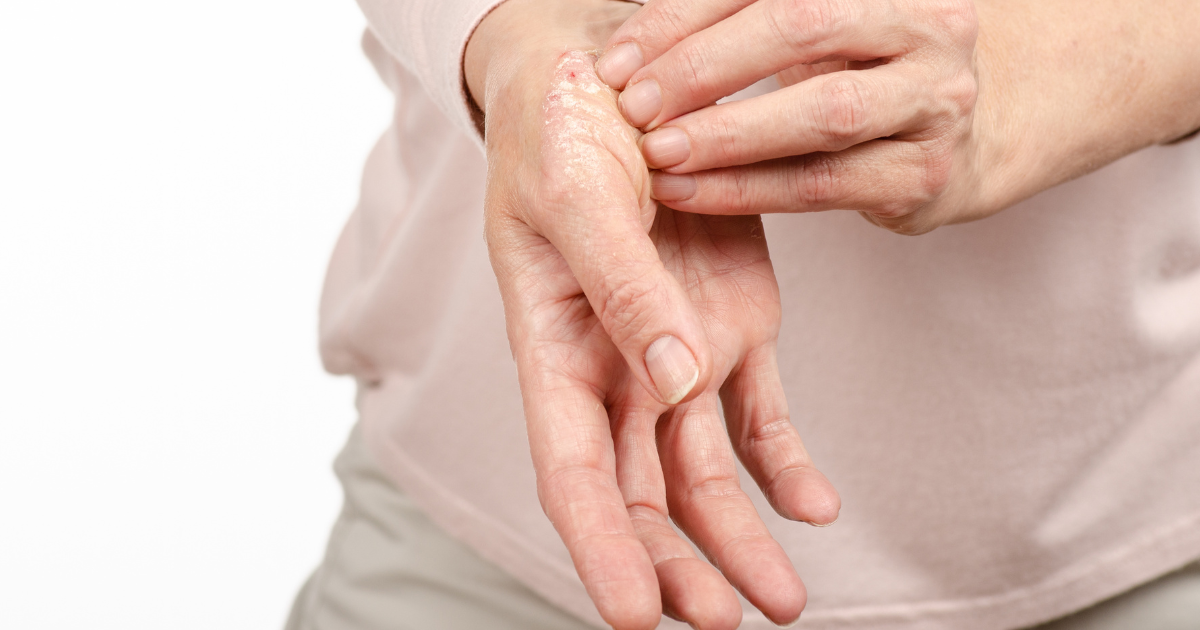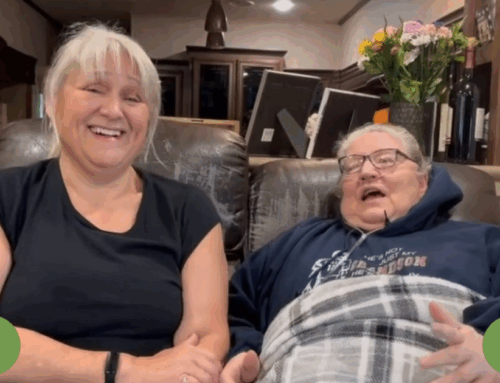What is psoriasis?
According to a recent Google search, it is “A condition in which skin cells build up and form scales and itchy, dry patches.” Studies have shown that this condition gets worse as seniors age, and it’s estimated that 7.5 million Americans suffer from psoriasis. Join us in the journey of finding out how to manage psoriasis and how senior help from our trained caregivers is vital in management.
Some scientists believe that it runs in families, so there is a genetic component that can increase your likelihood of having psoriasis. Like other diseases, there are triggers that can “turn on” these genes to give the effects of psoriasis that include: stress, skin injuries, infection, medications, weather, tobacco, and alcohol.
Types of Psoriasis
- Plaque psoriasis is the most common showing up in patches of thick raised skin with scales.
- Guttate psoriasis is more common after an infection that is temporary.
- Inverse psoriasis often develops in areas where skin touches like armpits, genitals, etc, and can look like patches of red skin that is sore or painful.
- Pustular psoriasis is characterized by pus-filled bumps that are commonly on the hands or feed.
- Pustular psoriasis (generalized) is life-threatening that covers most of the skin. This should be addressed immediately by a doctor.
- Erythrodermic psoriasis is life-threatening and is characterized by skin that looks burnt and itchy. Medical care should be sought immediately.
- Psoriasis in nails is commonly paired with plaque psoriasis and is characterized by the build-up of skin cells underneath nails.
- Psoriasis in joints is more common in seniors that have swollen or tender joints and have stiffness in the morning.
Causes and Triggers of Psoriasis
- Stress: the most common trigger
- Injury to Skin: sunburn, bug bites, vaccinations
- Illness: infections
- Weather: cold and dry weather
- Allergies: seasonal or food
- Food: nightshades, red meat, gluten, dairy, processed foods, alcohol
- Tobacco: any form
- Environmental Factors: weather, allergies, exposure
Treatments Available
- Topical Ointments will soothe the skin. Trained caregivers can support applications for senior help.
- Phototherapy/PUVA Therapy is a laser that destroys blood vessels that feed the psoriasis sites causing them to fade.
- Psoriasis medications can be potentially complicated for seniors as they are more often on more than one kind of medication, and some have harsh side effects.
Some research has suggested that reduce inflammation, omega-3 fatty acids can help reduce the symptoms of psoriasis, but more research is needed to be conclusive.
Psoriasis can be hard to manage alone, which is why it’s helpful to have a trained caregiver to provide senior help in managing this condition and staying regular with treatments and flare-ups. Interested in learning about how our caregivers can provide senior help? Contact us!
Sources:






